Asylum hotels in Surrey and what happens next
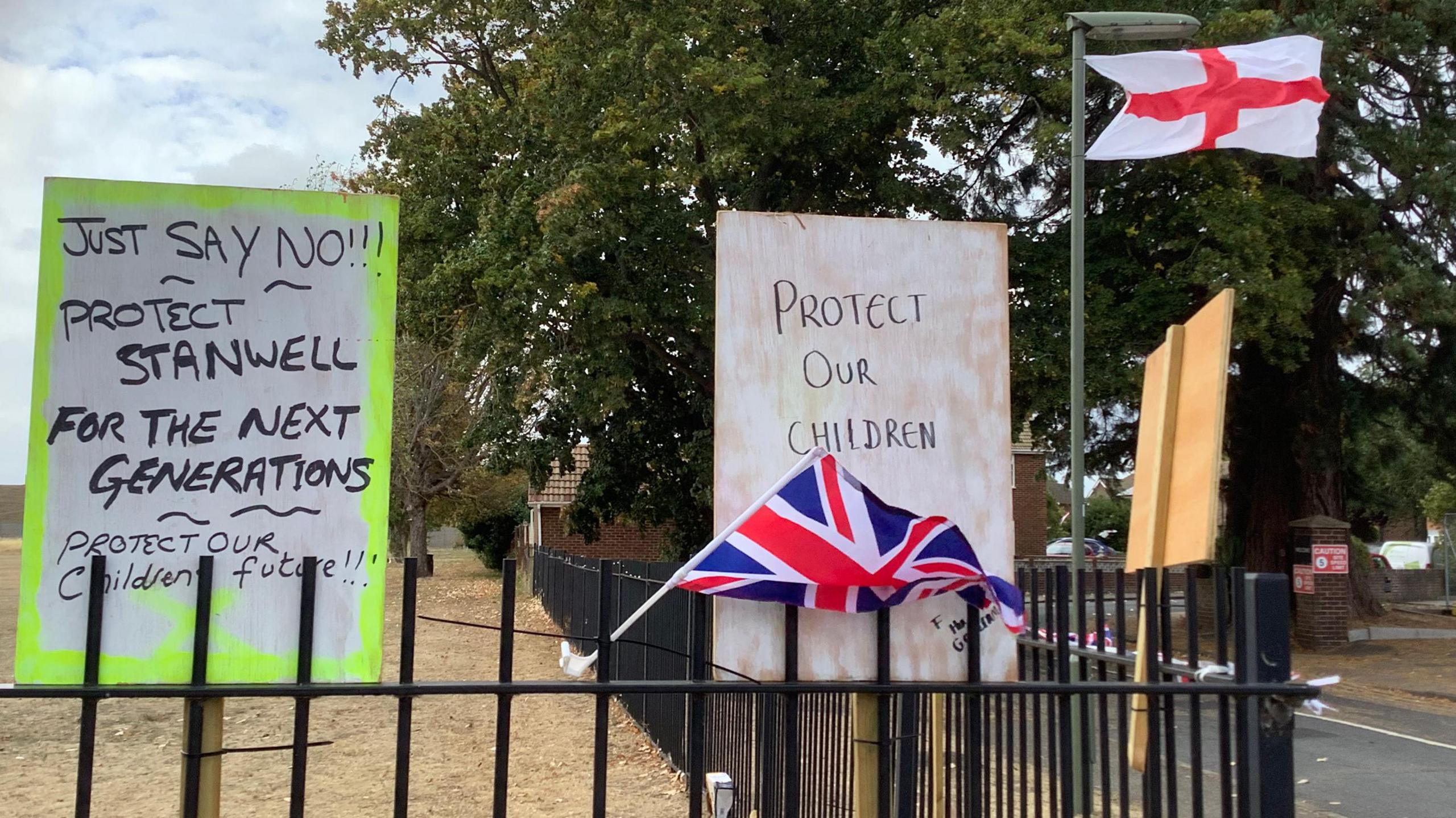
There have been a number of protests and counter protests about the use of hotels
- Published
As protests against hotels housing asylum seekers, as well as counter-demonstrations, take place across England, we examine the situation in Surrey.
Stanwell, near Staines, and Horley, near Gatwick, have both seen protests in the last few weeks, similar to demonstrations elsewhere in England and Scotland.
On Friday, the Court of Appeal overturned a temporary injunction which would have prevented asylum seekers from being housed at The Bell Hotel in Epping.
This was seen as setting a possible precedent for legal challenges being considered elsewhere, including in Surrey.
Where have asylum seekers been staying in Surrey?
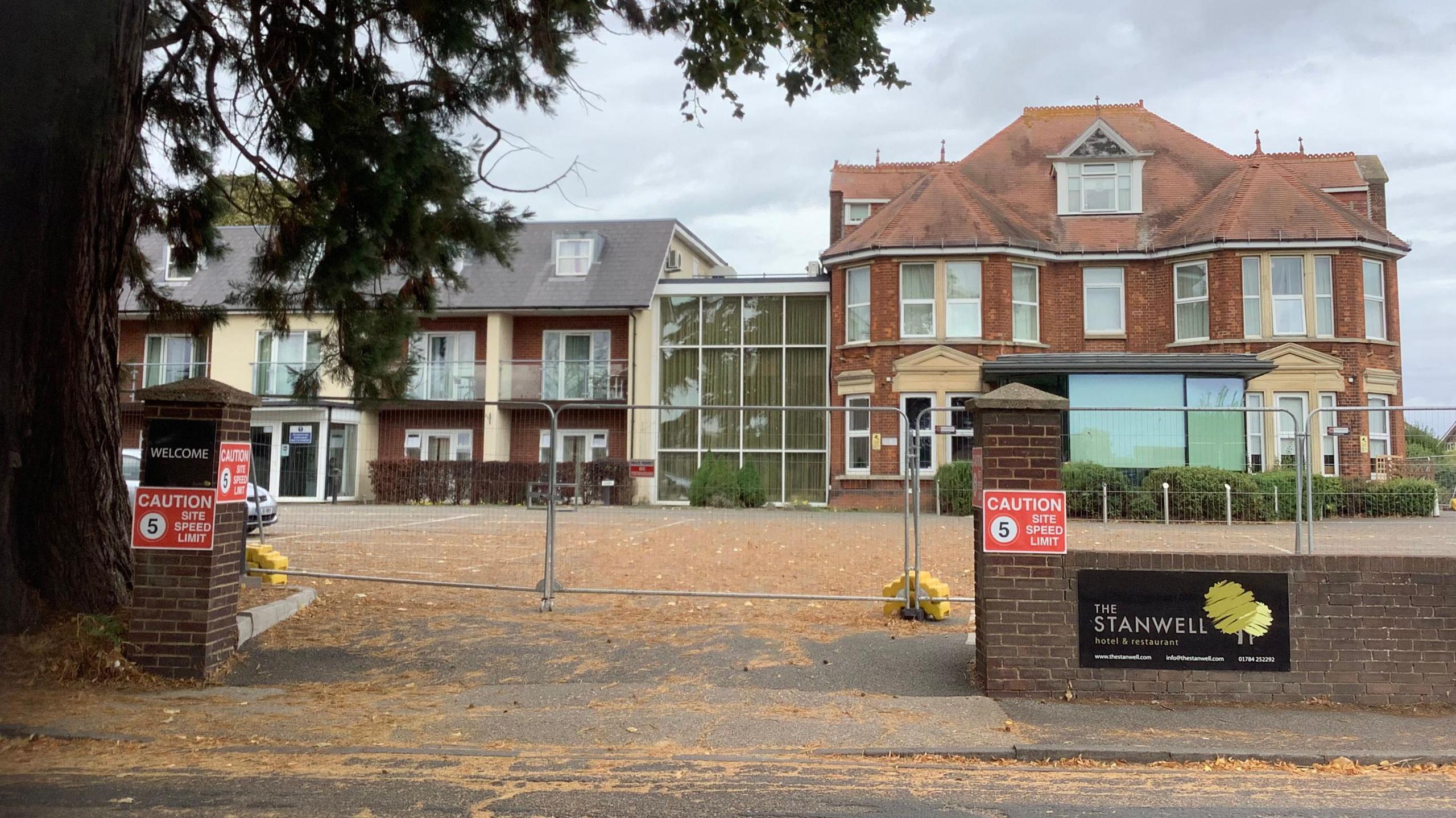
The use of hotels to house asylum seekers increased during the pandemic
As of June 2025, hotels in three boroughs, Reigate and Banstead, Spelthorne and Surrey Heath, housed almost 400 asylum seekers, the latest migration data from the Home Office shows.
Figures for the UK for the year to June show that 43,000 people arrived by small boats.
The data shows that Afghans were the most common nationality in hotels in the south-east of England, with higher numbers of people also from Iran, Syria and Iraq compared with other countries.
The latest data did not publish specific costs for hotels, but government figures released in July showed the amount being spent was going down.
Hotel use increased during the Covid-19 pandemic.
Where have protests happened?

In August, protesters gathered outside the Four Points by Sheraton Hotel in Horley
Protests began in Stanwell in July after Home Office proposals to exclusively house male asylum seekers at The Stanwell Hotel in Town Lane, instead of families and single women
The government has currently paused its plans, after discussions with Spelthorne Borough Council, but residents have told the BBC that they are still concerned about what will happen.
Meanwhile, on 23 August, about 200 anti-immigration protesters gathered outside the Four Points by Sheraton Hotel in Horley, after 26-year-old resident Qais Al-Aswad was found guilty days earlier of sexual assault.
About 30 people attended a counter-demonstration.
Why are people feeling concerned?
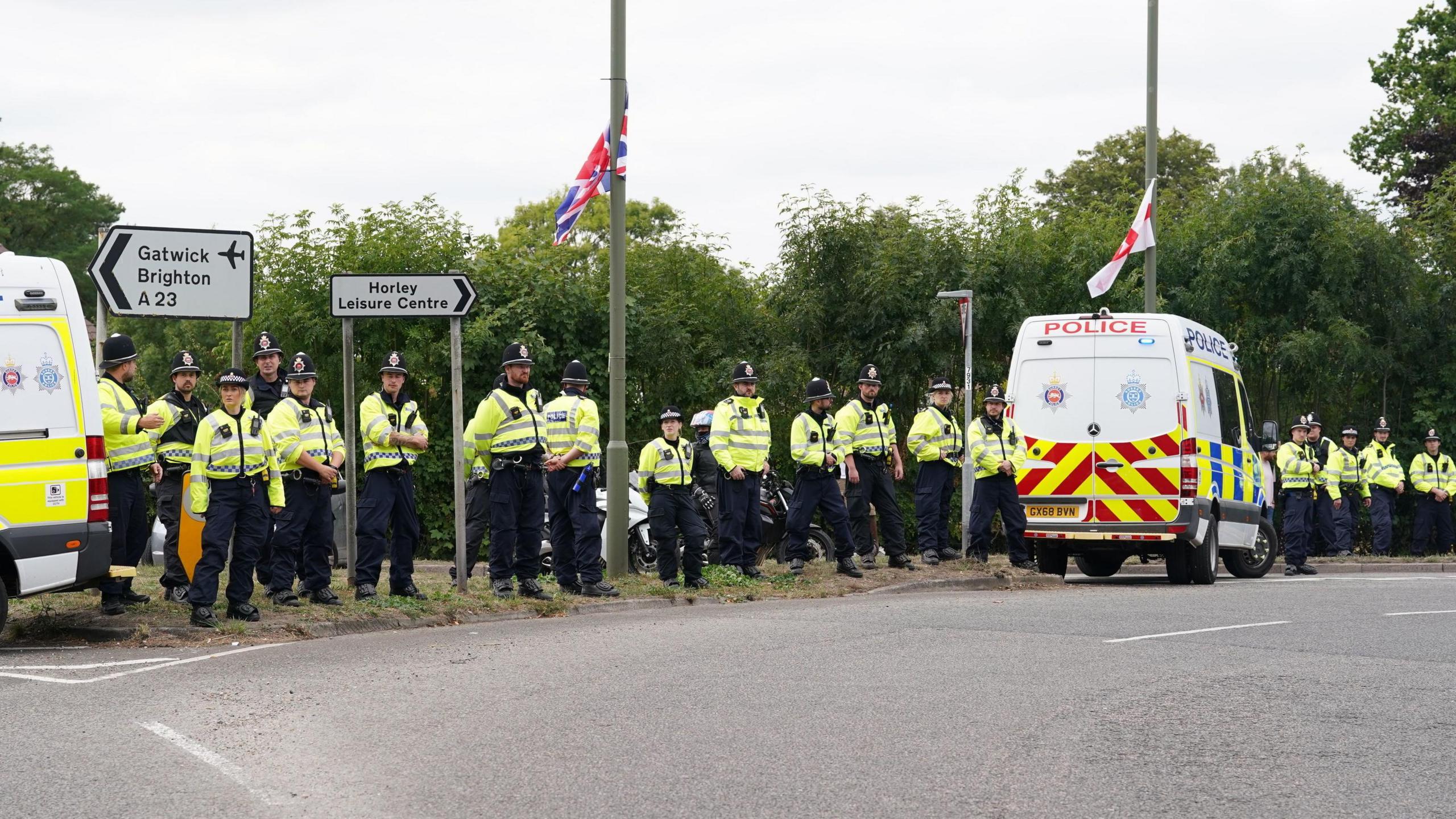
Surrey Police has attended the protests
People in Stanwell and Horley have told BBC Radio Surrey there are fears over safety, particularly for women and girls.
Resident Alison Haskins said the single men were "on their own or in groups" and she found them intimidating.
She said the aim of the protests was "just to make them aware that we are around, we're not happy about the situation and we do want them out".
Some people in Stanwell have also said they are unhappy the building can no longer be used for events such as wedding receptions and funeral wakes.
Splendid Hospitality Group, which owns the Stanwell Hotel, has been approached for comment.
Meanwhile, asylum seekers inside hotels have told the BBC they are in a "state of constant anxiety" amid nationwide demonstrations.
Are councils in Surrey taking legal action?
Before the Epping decision, Spelthorne Borough Council said it had received preliminary legal advice which suggested an injunction was legally closed as an option.
Spelthorne council leader Joanne Sexton said: "We are currently awaiting a formal response from the Home Office, which will help determine our next steps.
"Please be assured that the council is committed to exploring every available option to achieve the best outcome for the community."
There has not been an update from Spelthorne since the Court of Appeal verdict.
Previously, Reigate and Banstead Borough Council had said, in terms of Epping, it was reviewing the decision and considering its options.
Approached again after the judgement, it said it currently did not have any more to add.
A spokesperson for Surrey Heath Borough Council said: "We are not considering any similar legal action to that of Epping Forest District Council."
Some councils elsewhere in the UK have said they are still pursuing legal action.
What is the response from the government?
Labour ministers have said they will end the use of migrant hotels by 2029, by cutting small-boat crossings and speeding up decisions on asylum claims.
A Home Office spokesperson said: "We will continue to work closely with community partners across the country, and discuss any concerns they have, as we look to fix this broken system together.
The security of the local communities within which hotels are located will always be our paramount concern."
BBC Radio Surrey programme
What is happening with asylum seekers at hotels in Surrey will be discussed as part of a special programme on BBC Radio Surrey.
Presenter James Cannon will hear from concerned residents, politicians and experts, as well as getting analysis from reporters on the BBC Radio Surrey breakfast show on Tuesday from 09:00 BST
Follow BBC Surrey on Facebook, external, and on X, external. Send your story ideas to southeasttoday@bbc.co.uk, external or WhatsApp us on 08081 002250.
- Published30 August

- Published8 August
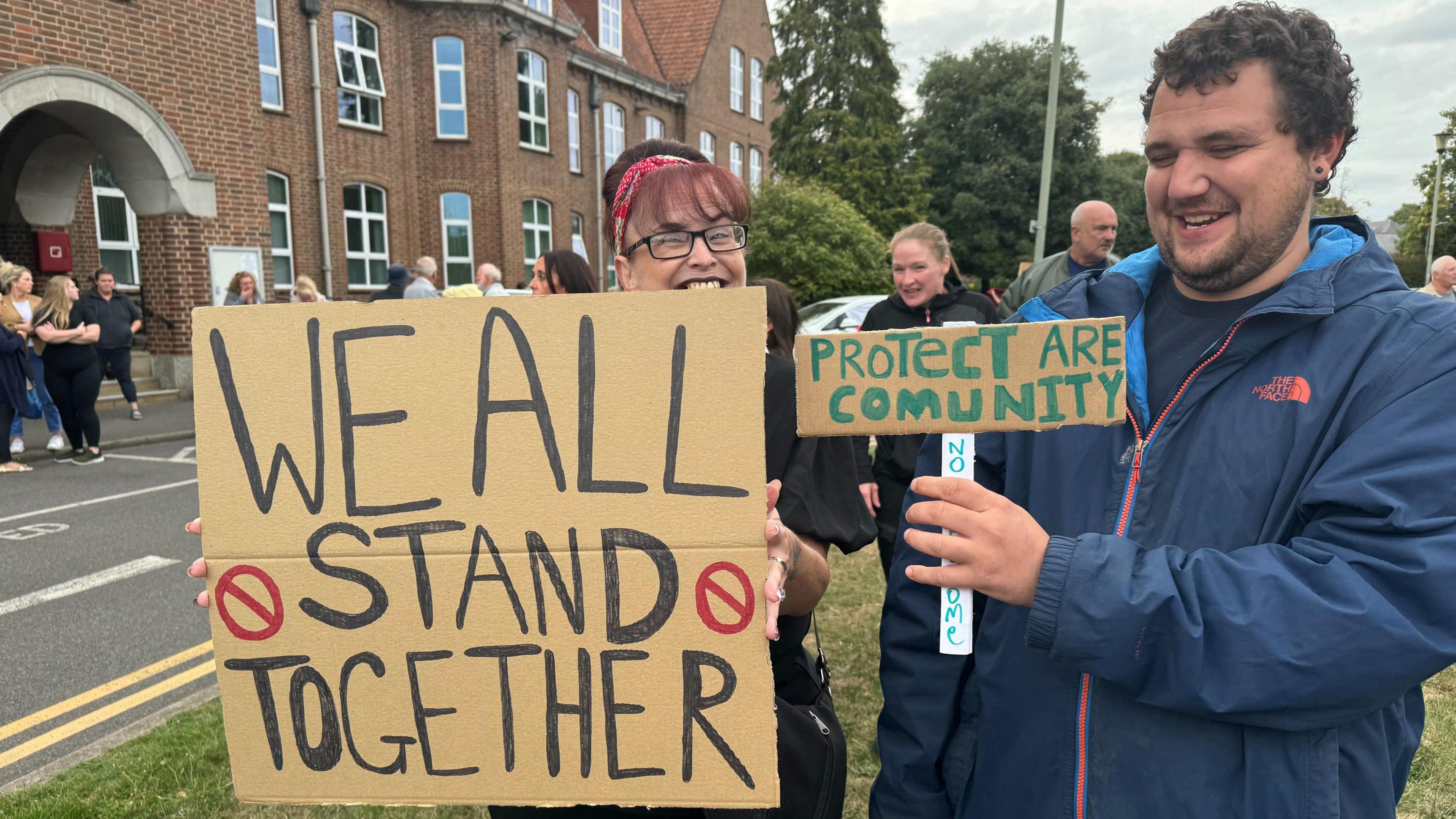
- Published25 August
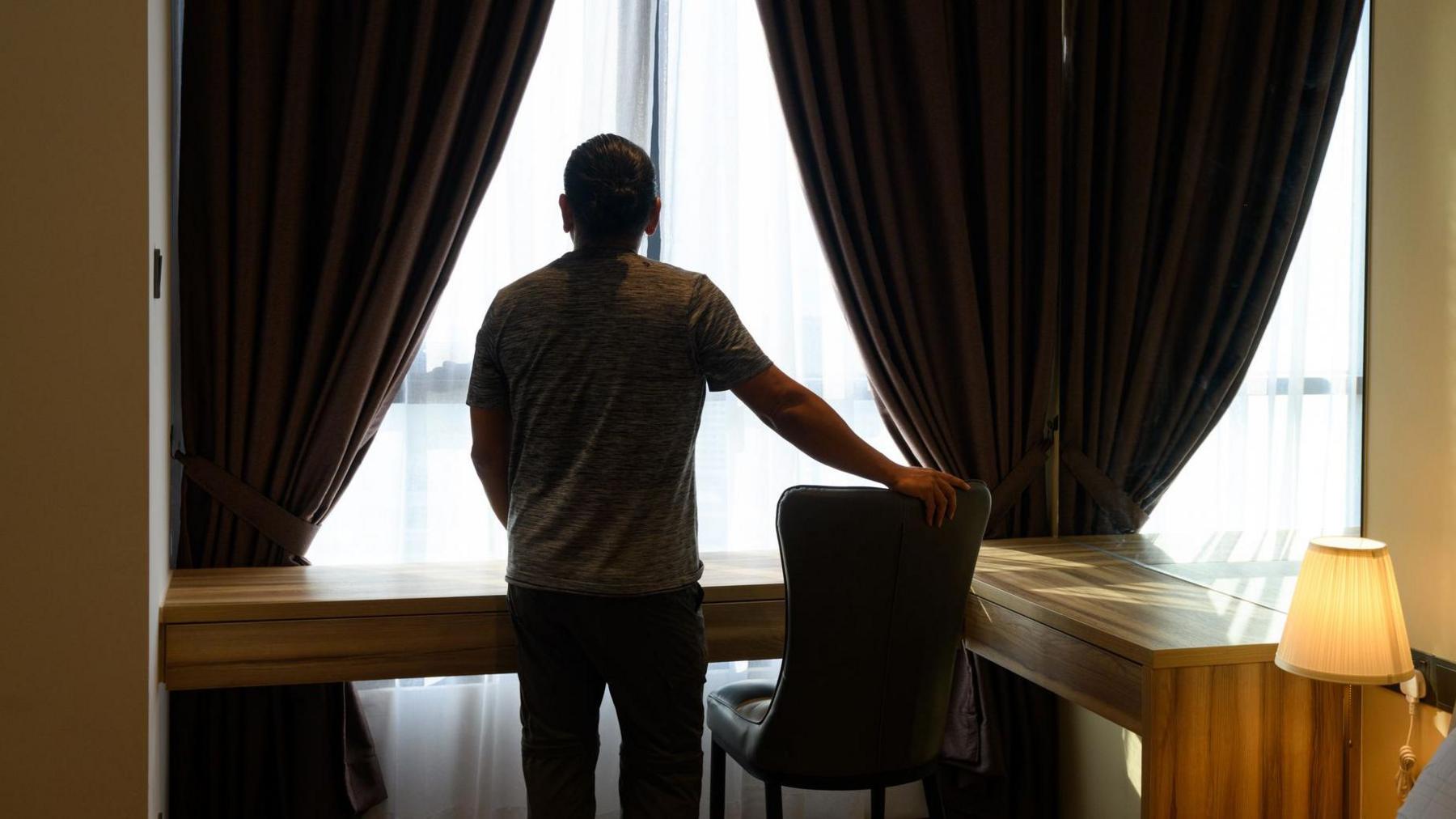
- Published23 August
